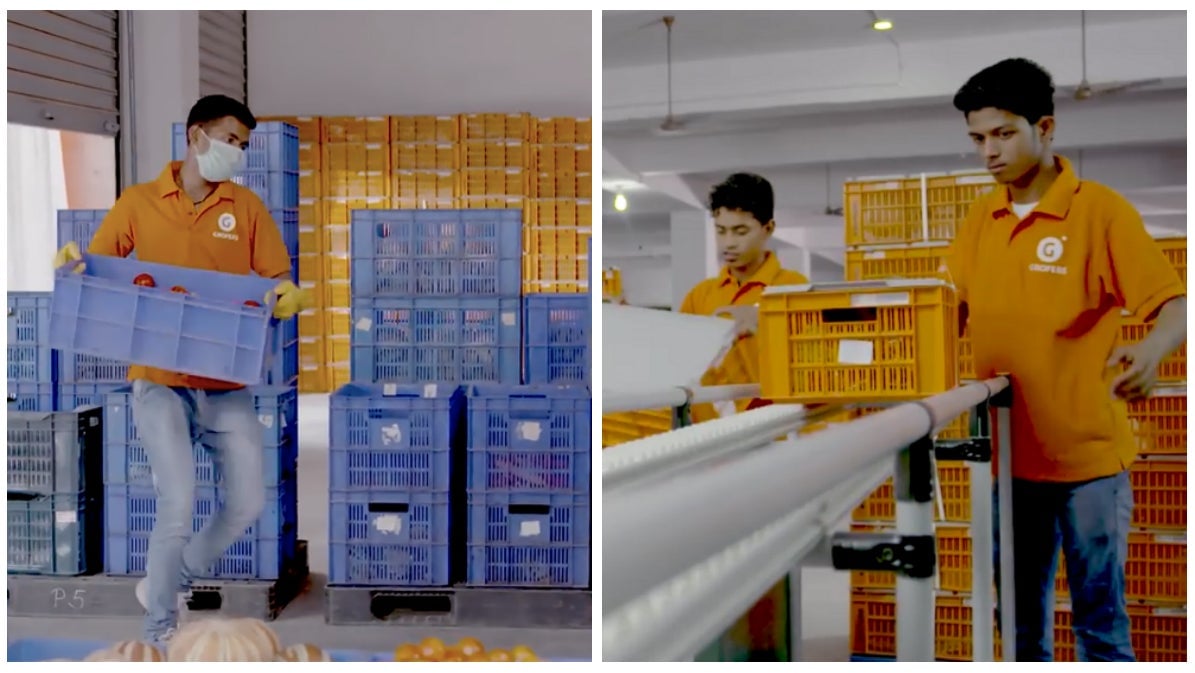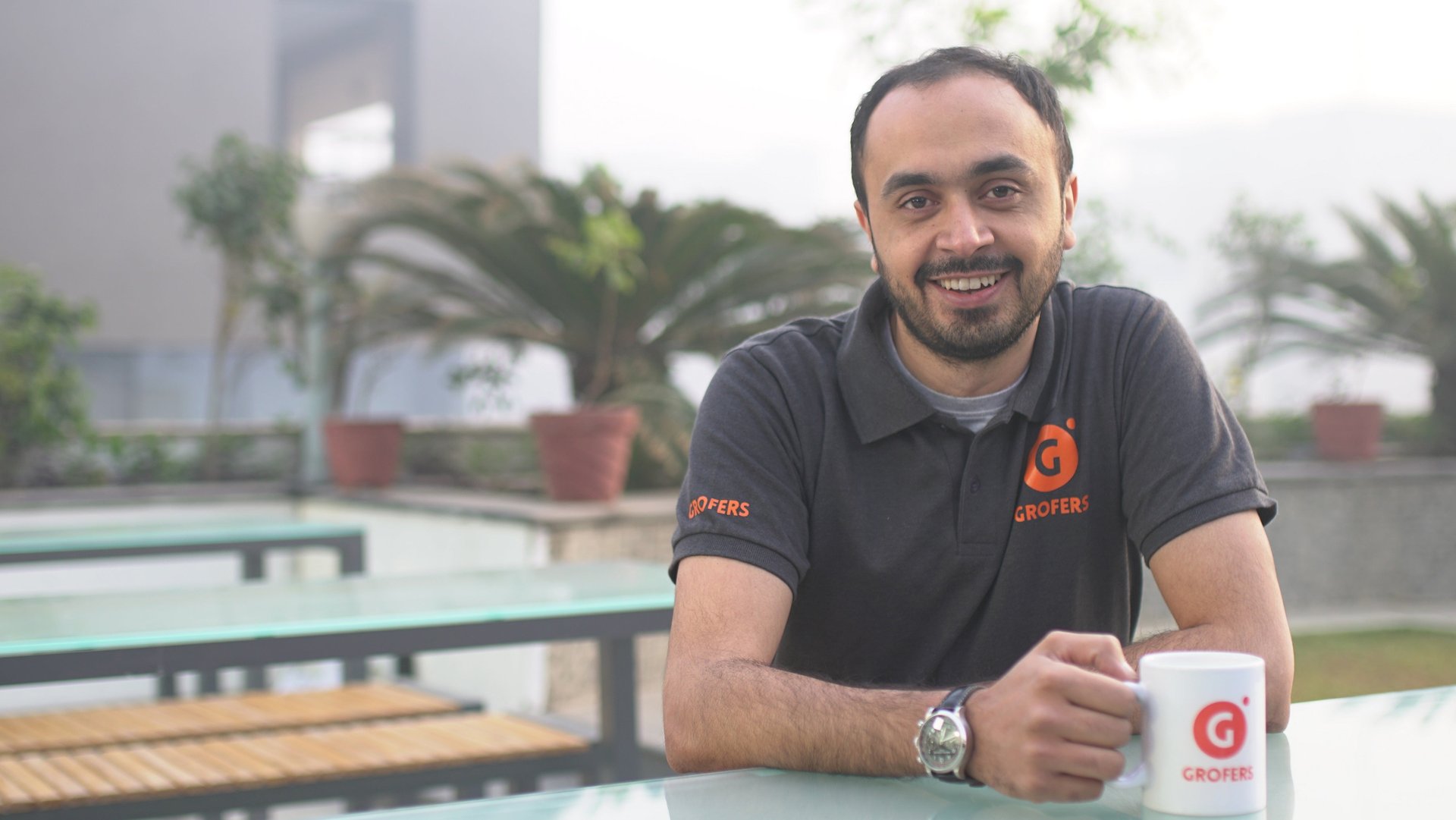An Indian startup thinks it can beat Amazon and Flipkart at the grocery game
Grocery delivery is touted as the next big thing in Indian online retail, and e-commerce majors like Amazon and Flipkart have been obsessing over it lately.


Grocery delivery is touted as the next big thing in Indian online retail, and e-commerce majors like Amazon and Flipkart have been obsessing over it lately.
But even as these giants pour in the big bucks to win the market, three-year-old Gurugram-based startup Grofers believes it has the code to crack the business better than the rest.
The Softbank and Tiger Global-backed company started off in 2014 as a mobile app where small merchants could list and sell their products. It has now evolved into an inventory-led online grocery delivery firm that also sells home-care products, apparel, and general merchandise.
After some rough days in 2016, which involved shutting down operations in some cities, layoffs, and battling rumours of getting sold, the company is back on a firm footing. Its revenue tripled between February and November 2017, co-founder and CEO Albinder Dhindsa said. In financial year 2015-16, Grofers earned Rs14.3 crore (approximately $2.1 million) in revenue, making losses of around Rs225 crore, regulatory filings sourced by data platform Tofler show.
Today, it processes an average of 25,000 orders daily, a near 200% increase from the start of 2017, Dhindsa said.
He spoke to Quartz about what he expects in the market in 2018. Edited excerpts:
What does 2018 hold in store?
Indians don’t have very high disposable incomes, but grocery is a necessity that everyone spends on. That means the next spurt of e-commerce growth will come from this segment. The big trend we are seeing is a lot of first-time customers trying out e-commerce via grocery.
What will Grofers focus on this year?
We will stay focused on ensuring better pricing for customers, working with brands, and making our supply chain more efficient. In addition, we will try to introduce more innovative ways through which customers will have access to products at better prices.
2016 was a rough year for Grofers as you shut shop in several cities. Do you plan to expand again?
We have restarted business in most of the cities where we earlier stopped operations. We are now present in 25 cities (compared with 19 when it started downsizing in 2016), and right now we are not looking to expand beyond this. Until we start making profits, it doesn’t make sense to start expanding to new cities.

In retrospect, do you think it was the right move to downsize? How has your business been since then?
At that time it was necessary for us to take stock of where we were and there were a lot of places where we didn’t have efficiencies. But once we found our groove again, we started growing. Over the last one year, our business has grown almost four times. Our losses have gone down. Now we’re getting benefits of scale, and we can see a genuine path to profitability over the next few years.
We’ve started hiring again, and in 2017, we did some campus hiring, too. But now we are a lot more judicious about hiring. We have about 1,000 employees in offices and another 1,500 people on the field.
What are your challenges and how do you plan to deal with them?
The biggest challenge for us right now is that the size of the order that we get is continuously rising. We have been adjusting to it by getting bigger trucks for delivery. I think what we will end up doing in the next few months is figuring out how to deal better with this increasing basket size and deliver bigger orders more efficiently.
Your rival, BigBasket, could soon receive $300 million in funding from Alibaba. Is that a cause for concern?
There’s been a lot of noise in the grocery market over the last year, but we have just been executing on a strategy that we had picked. I think we will stick to doing what we are doing and not worry about what else is going on.
Next year, we’ll tap the market to raise capital to fund our growth, because we are growing at a very fast pace. At the end of the day, fund-raising correlates to how businesses are doing. We have probably been the lowest spenders in the market over the last few years but we’ve still grown the fastest. Funding is important but I don’t think it is the only deciding criteria.
Amazon has started grocery delivery and other major players like Ola and Flipkart have also shown interest in the segment. What would competition from the big boys mean for Grofers?
All this has been happening over the last year or so. It didn’t impact our growth. The key is to choose your market and keep working on it. More players getting into the online market is good because it will create more awareness and a comfort level among the customers. So I don’t see that as a bad thing at least in the medium-term. But in the long run, the more focused players—the ones who are serious about doing just this and building specifically for particular use cases—have a better shot at success than those for whom it is a side business.